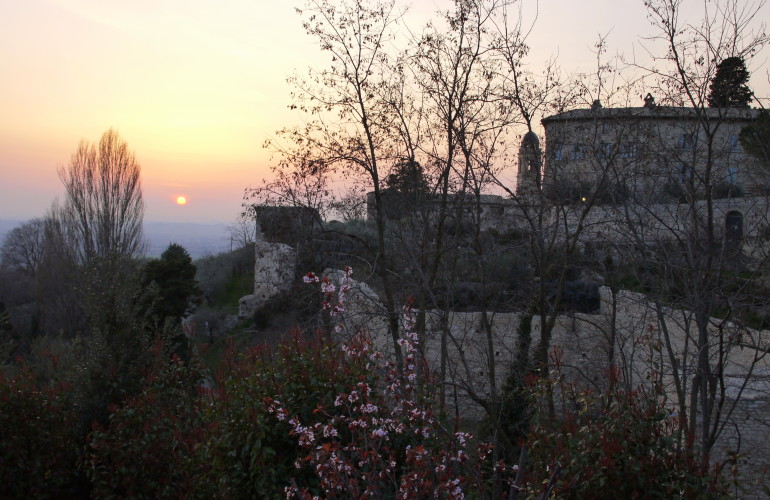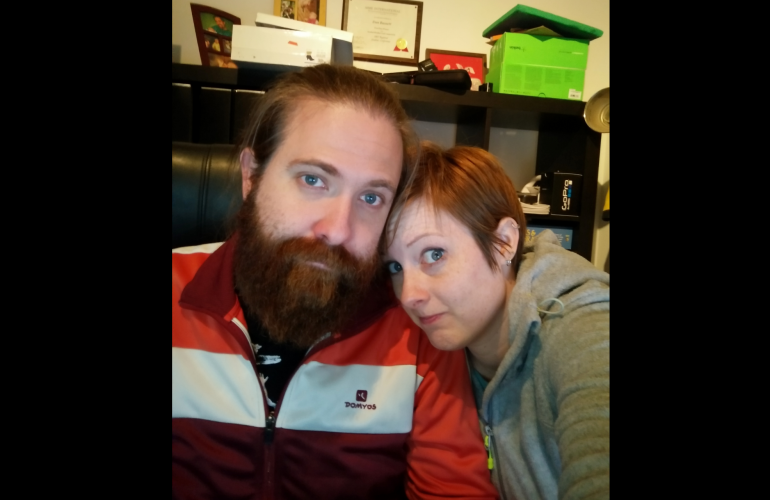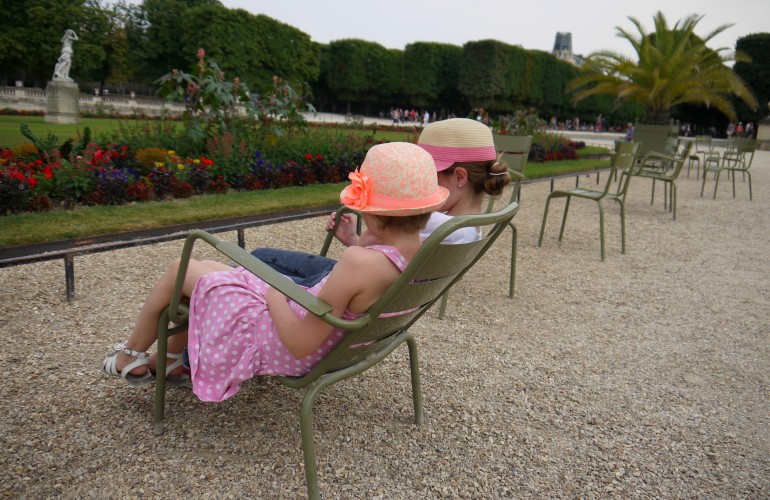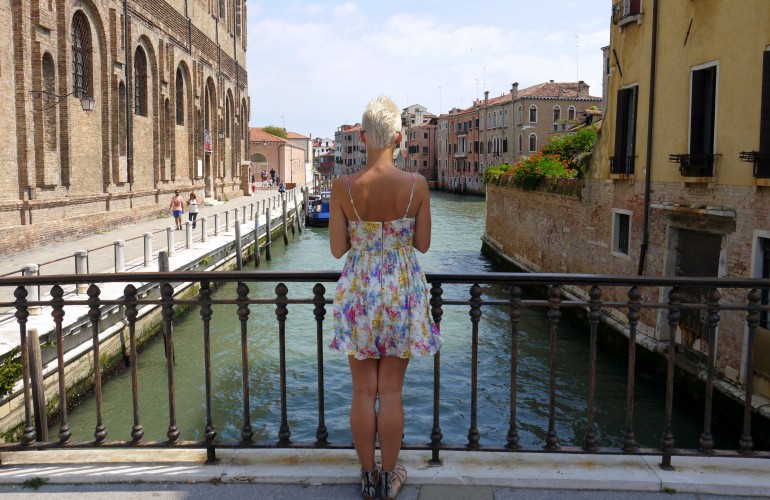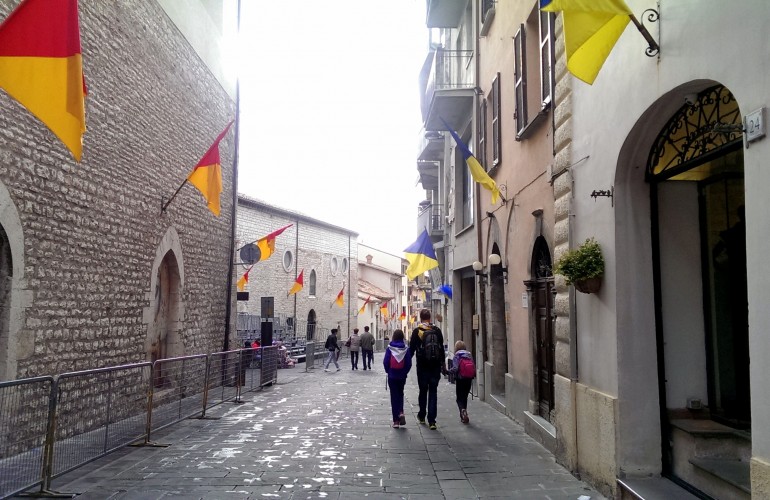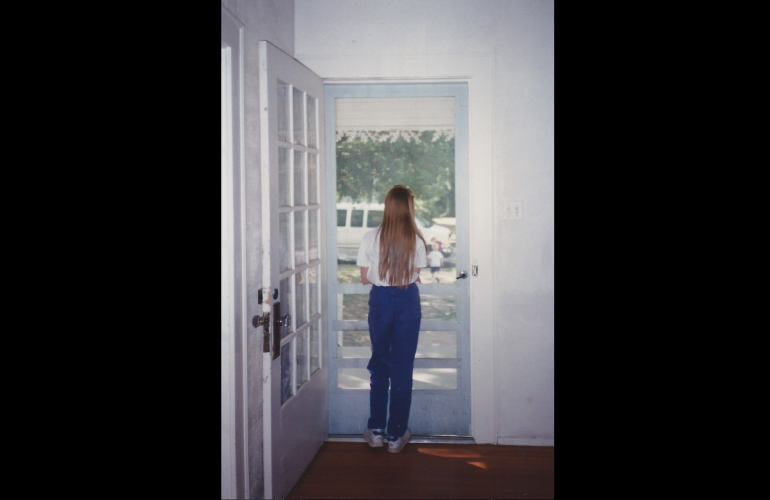[Photo of the first sunset of spring over the walls of Assisi]
In nearly thirteen years of marriage, Dan and I have moved five times and have lived out of suitcases three different summers. Each time we gear up for a new transition, I read a book about decluttering to try to offset my frugal “But we might need that someday!” impulse with the pure glee of tossing items I will no longer need to dust, iron, or trip over in the storage closet. This time, I picked Marie Kondo’s The Life-Changing Magic of Tidying Up because I like being approximately a year late to online parties and also because I wanted to start using the phrase “This does not spark joy” every time my alarm goes off in the morning.
Yes, we’re headed for change once again. In an attempt to out-epic all previous summers, we will be living from suitcases for a few months while we catch up with loved ones and eat our weight in fresh salsa in the States, and then we’ll be moving from our little Umbrian city to the sprawling metropolis of Milan.
More of our heartstrings are caught up in this move than in others before it. Perugia has been our home for the last nine years. It’s the city we know best in the world, and it’s almost impossible to imagine no longer getting coffee at the bar up the street or going for runs at the park down the hill. When Natalie and I attended junior high orientation last month, I hovered Mission Impossible-style above the surface of grief, trying to modulate my emotions so I wouldn’t make a scene in front of all the friends and neighbors we are about to leave. The girls are taking it even harder.
We have a host of compelling reasons for the move though, and our sadness at leaving our current home is woven inextricably with happiness about our new one. Work and church and family await us in Milan, and the fact that we’ll be able to see the Alps on a clear day doesn’t hurt either. We know with certainty that it’s time for us to move on.
This brings me back to decluttering. I’m going through our clothes and books and knickknacks trying to determine what will bring value and joy to our life in Milan and what would only be a weight. I’m no natural at this, mind you. I fretted earnestly this morning over throwing out threadbare socks that I haven’t worn in years. (We won’t discuss the shoe situation at all, thank you kindly.) The biggest item I’ve had to evaluate, however, took only a quarter hour of soul-searching before I admitted that it has been dousing me in self-reproach rather than sparking my joy like it used to do. As Marie Kondo would say, this blog has served its purpose for me and deserves to be let go with respect.
I can’t tell you how reluctant I am to put an official stop to this writing that I’ve kept up off and on since 2002. Blogging has given me a voice when I’ve felt most alone and has connected me to priceless communities of people. This is where I’ve chronicled the early years of parenthood and the complicated shifts in my faith. So much of who I am is poured into this online space where so many of you have invested as well.
Our self-employment contracts have increased dramatically over the last year though, and my busyness is only going to ramp up over the coming months. I’ve caught myself many times wanting to spend a precious free hour working on a writing project with deep significance to me and then remembering that I haven’t blogged in ages, reasoning that I should get this up to date before tackling any other project, and ultimately giving up on the idea of writing at all that day. It’s become a lead-plated cycle of dispassion and guilt, a far cry from the creative outlet that blogging used to be.
I want to say goodbye to Perugia well, and I want to start our new life in Milan well. Holding onto this blog for old times’ sake will help me do neither. Therefore, with an almost exact blend of the excitement and heartache I feel about our upcoming move, I’m publishing this as my final post here.
Thank you all for the time you’ve invested in my blog. I can’t thank you enough for your friendship, and I’d love it if you continued to keep in touch on Instagram (@bethany_bassett) where I will be documenting every funny misadventure of the coming months. Here’s to spring and to hard-good changes and to bestseller buzz phrases that nevertheless lead to joy.
With much love,
Bethany
